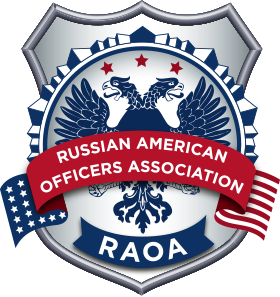Memorial
Remembering Russel


Russel Timoshenko immigrated with his parents to the US in 1993, from Bobrusk, Belarus. Upon graduating from Tottenville High School, he wanted to become an engineer and attended Polytechnic University. He then changed schools and enrolled in City College to major in Business. His neighbor and good friend Nick, however, became a police officer. Nick enjoyed his job and Russel decided to give the NYPD a try. In January 2006, just a few credits short of finishing his degree, he entered the Police Academy. He was full of life and full of promise. He liked the job and was proud of being an officer – "I want to go to work each day and help people. I want to come home each night and feel good about what I've done," he announced to his parents on the day of his graduation from the Academy.


When Russel learned about the Russian American Officers Association – our fraternity of sworn local, state and federal law enforcement officers of Russian descent, he was eager to join. However, he only made it to a few meetings before the day when I received a phone call on July 9, 2007, about Russel being shot. I rushed to Kings County Hospital. There I was met by many members of the Russian American Officers Association but this meeting was awkward, eerie and surreal. Never before had we gathered in such dire circumstances. Never before could we have imagined such loss to our family.
I first met Russel's parents, Tatyana and Leonid, in the hospital. I was filled with empathy and sorrow, but my feelings were unspeakable; I could not utter a word.
Upon my daily departure to Kings County Hospital, my mother, who was like Russel's mom - not in favor of me joining the force, asked me where I was headed. Fathoming her worst fears, and considering that I, as was Russel, am also my mother's only child, I did not tell her of my true destination.
Standing by Russel's room, and often by his bed, on the third floor of the hospital every evening, we kept a silent vigil. Although his condition was already beyond grave, we watched him sink away even further. I recall on the third eve of being in his room, after speaking with the doctors, Russel's mom walked in, looked at us with her grieving eyes and said: "I know he's going to die, I know he's going to die guys." Chills went down my spine and deafening silence filled the atmosphere for reality came upon us and we knew that she was probably right.
The doctors' prognosis for Russel was grim. They were implying to Tatyana and Leonid that Russel would never come out of his vegetative state. Indeed, they were carefully choosing their words without directly telling Russel's parents that they really did not think he would make it. This was unacceptable to his parents to whom Russel meant everything. They sought multiple opinions, even from as far as Europe.
Then on July 14, we gathered in the hallway of the third floor as the utterly grim news were that Russel was going to be taken off of life support. A team of Emergency Service men came into Russel's room with a stretcher. Moments later, as our hearts pounded uncontrollably and strange calm filled the air, the men hurriedly carried out Russel's body, covered with the NYPD flag, out of the room and through the hall - with a brief stop before Russel's parents who were standing besides us and awaiting in grief.
Three days after seeing Russel in the hospital my last time, I was standing in an around-the-block-long line leading to IJ Morris Funeral Home for Russel's wake. Two days later I attended Russel's funeral. It was unthinkable to comprehend that just a few weeks before, Russel was sitting next to me at the Downhouse Lounge, after our membership meeting. Now I was watching an NYPD helicopter flyover directly above Russel's casket and the vast formation of uniformed and civilian mourners lining blocks of both sides of Flatbush Avenue.
A few weeks after the funeral, I was sitting behind a table of a few Association members in the Jewish Community House of Bensonhurst, accepting contributions for Russel's family. The Association organized a drive to which anyone who wanted to donate was invited. This gathering became the largest assembly of Russian-American law enforcement officers ever. One hundred six officers and many civilians attended. People gave whatever they could; they gave generously.
Since Russel's death, the NYPD has enhanced its vehicle stop tactics training, a park was renamed in Russel's honor, many sporting tournaments have taken place in Russel's memory, a scholarship fund was established, and the street on which Russel resided was renamed Detective Russel Timoshenko Way. Yet nothing is enough consolation for the young officer's parents, as Tatyana Timoshenko often reminds us – it is in no way comparable having a fallen hero to a living son.

Written by Michael Belogorodsky
published in METPO Magazine
February 2010
